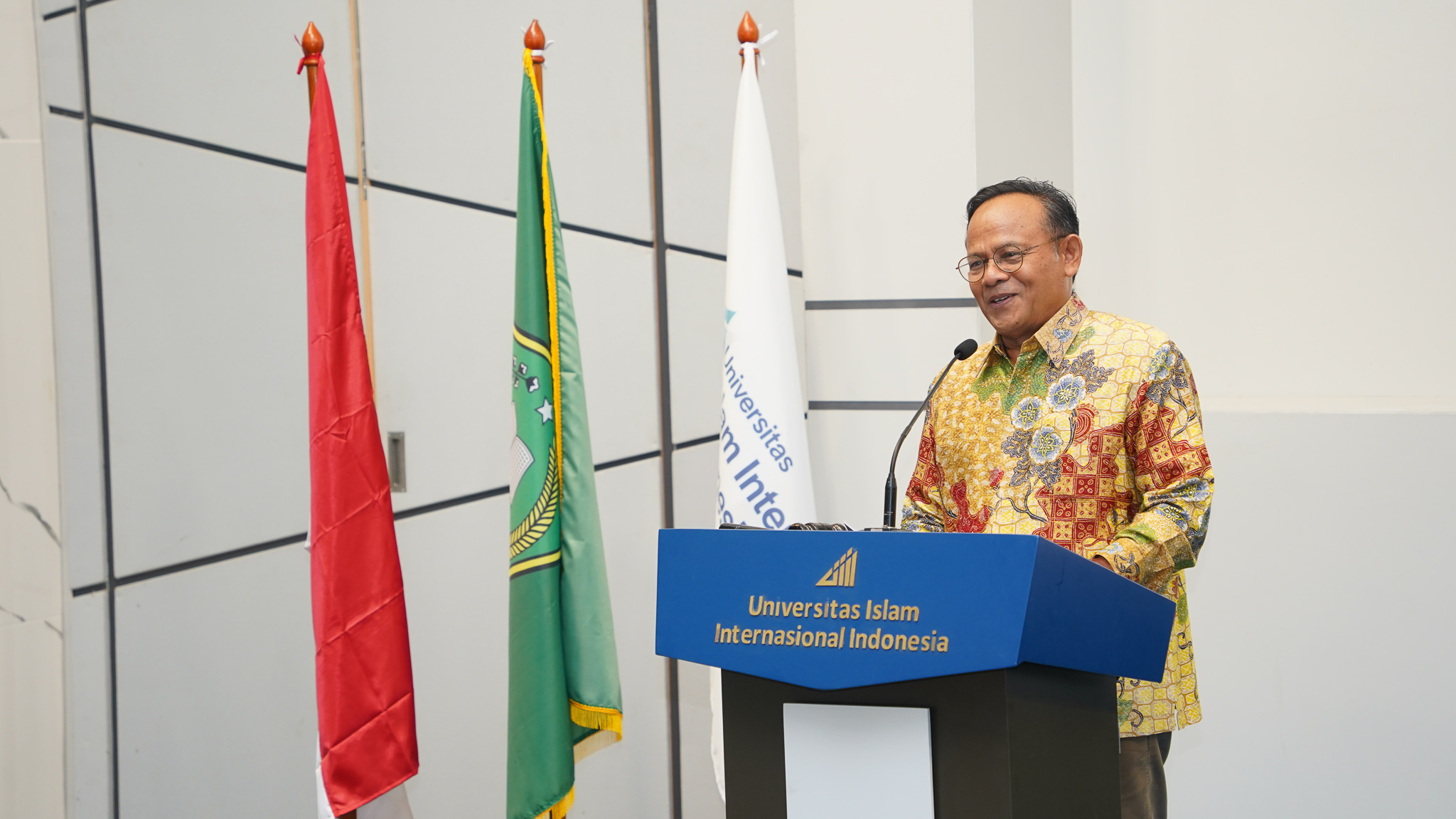July 26, 2025
By Dadi Darmadi

Jakarta –Friday, July 25, 2025– As Indonesia navigates a new chapter under President Prabowo Subianto, the nation’s press faces a critical test. With concerns mounting over media freedom, Prof. Komaruddin Hidayat, the newly appointed chair of the Indonesian Press Council (Dewan Pers), is stepping up to address these challenges head-on. This July, he’ll bring his insights to the International Conference on Human Fraternity in Jakarta, hosted by Universitas Islam Internasional Indonesia (UIII) and Abu Dhabi’s Higher Committee of Human Fraternity (HCHF) on July 29–30, 2025. Presenting a paper in the “Media’s Role in Bridging Divides” panel alongside Azza Karam and others, Komaruddin will explore how the media can foster unity in a polarized world.
Truth in Turbulent Times
Komaruddin Hidayat is no stranger to the power of words. A respected academic, former rector of Syarif Hidayatullah State Islamic University and Universitas Islam Internasional Indonesia (UIII), and a one-time seasoned journalist, he’s seen the media’s role evolve through Indonesia’s highs and lows. Decades ago, he often represented Indonesia at global media freedom conferences, an experience that showed him how fragile free expression can be. Now, as chair of Dewan Pers, he’s a steady hand guiding journalists through a stormy period.
Indonesia’s media landscape is under strain. President Prabowo’s claims that foreign-backed outlets are stirring division have raised eyebrows, with critics calling it a risky oversimplification. Meanwhile, journalists face real threats: animal remains sent to Tempo’s offices, harassment of Detik columnists critiquing military appointments, and quieter but persistent pressures on regional reporters. These incidents paint a tough picture for Indonesia as the world’s third-largest democracy.
In a recent conversation, Komaruddin described press freedom as a living struggle, shaped by each new administration. “The press is a mirror of society’s courage,” he said. “It shines brightest when journalists and citizens refuse to stay quiet.” He sees the challenges as more than just government pushback—economic pressures, declining public trust, and the wildfire spread of digital disinformation all play a part. “A strong press needs more than brave reporters,” he noted. “It needs a society that values truth.”
Bridging Divides
At the Jakarta conference, Komaruddin will present a paper in the “Media’s Role in Bridging Divides” panel, joining Cherian George from Hong Kong Baptist University and Farish Noor from UIII. The session will tackle how media can fight misinformation and build understanding in a divided world, a topic close to Komaruddin’s heart.
As conference convenor Ridwan al-Makassary explains, “This conference aims to ground the Human Fraternity framework, often seen as abstract, and make it relevant to today’s challenges like migration, poverty, conflict, climate change, and social injustice.” Komaruddin’s paper will likely argue that ethical journalism can be a bridge, fostering dialogue and trust in a polarized society.
His perspective is grounded in experience. Komaruddin points to the media’s resilience during Indonesia’s repressive Suharto era, when journalists found ways to speak out despite heavy constraints. Today, he sees hope in the country’s vibrant media community, even as incidents like the Tempo attacks spark concern. “This isn’t the first time the press has been tested,” he said. “Journalists always find their voice, no matter the odds.” He also urges the public to step up, supporting independent outlets and holding leaders accountable. []
Universitas Islam Internasional Indonesia